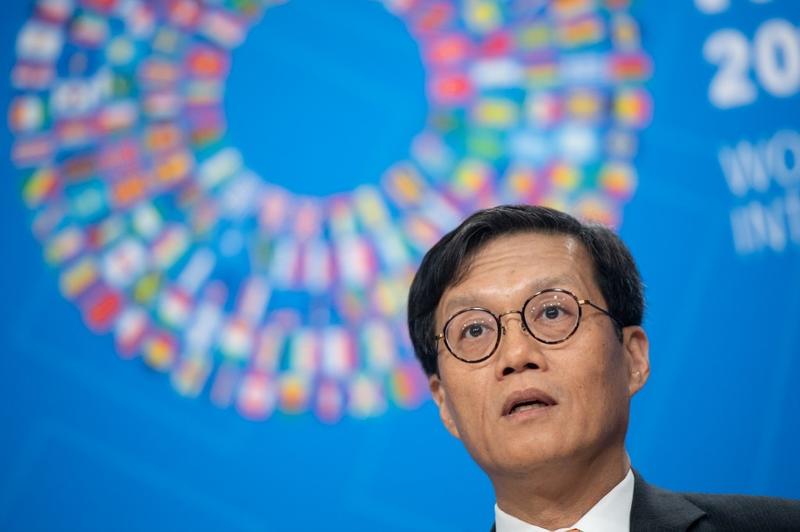 Changyong Rhee, director of the IMF's Asia and Pacific Department, holds a press conference during the IMF - World Bank Spring Meetings at International Monetary Fund Headquarters in Washington, DC, April 12, 2019.
(SAUL LOEB / AFP)
Changyong Rhee, director of the IMF's Asia and Pacific Department, holds a press conference during the IMF - World Bank Spring Meetings at International Monetary Fund Headquarters in Washington, DC, April 12, 2019.
(SAUL LOEB / AFP)
TOKYO - China has room to ramp up stimulus if its economy slows further due to the coronavirus outbreak, but should not lose sight of structural reforms to address rapid credit growth, a senior International Monetary Fund official said on Wednesday.
Changyong Rhee, director of the IMF’s Asia and Pacific Department, said China’s growth rate has been moderating even before the outbreak of the coronavirus because of “desirable” steps by its government to deleverage its economy.
Changyong Rhee, director of the IMF’s Asia and Pacific Department, said China’s growth rate has been moderating even before the outbreak of the coronavirus because of “desirable” steps by its government to deleverage its economy
Beijing will likely rely more on stimulus measures this year to keep its economy afloat, though the direct boost to growth will be smaller than past fiscal measures that focused on big infrastructure spending, he told a news conference in Tokyo.
READ MORE: Virus' economic impact manageable
“We understand that if the coronavirus cases slow the Chinese economy ... they have policy room” to provide more fiscal stimulus, Rhee said. “But we really hope that they can also (continue to) do ... structural reform and credit control,” he added.
Chinese policymakers have implemented a raft of measures to support the economy as investors feared the epidemic, which has claimed the lives of over 1,100 people in China, could have a damaging impact growth.
The World Health Organization (WHO) warned of a global threat potentially worse than terrorism.
Rhee said while it was too early to assess the impact of the coronavirus outbreak on Asian economies, it did add to risks to the region’s growth outlook.
“(We) don’t want to deny this event definitely increases the downside risk. Especially the downside risk will be large for countries which have close ties with China,” he said.
“At this moment, I think a major channel that has an impact in Asia is tourism,” he said.
Rhee said while it was too early to assess the impact of the coronavirus outbreak on Asian economies, it did add to risks to the region’s growth outlook
More than 70 percent of tourists visiting Hong Kong come from the Chinese mainland, while the share of the Chinese among tourists visiting South Korea and Japan was well over 30 percent, he said.
“It’s not just Asia,” he said, adding that some European countries were also seeing the number of tourists from China falling.
Rhee declined to give estimates on how factory shutdowns in China could affect Asian economies and companies, saying much will depend on how quickly the outbreak could be contained.
ALSO READ: IMF: China has resources to effectively deal with outbreak
But he said the potential impact on global growth will be discussed by IMF Managing Director Kristalina Georgieva during a Group of 20 finance leaders’ gathering later this month.
The global economic outlook and its risks will be among key factors to be debated at the G20 finance leaders’ meeting scheduled to be held in Riyadh on Feb 22-23.


